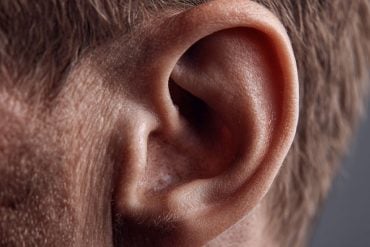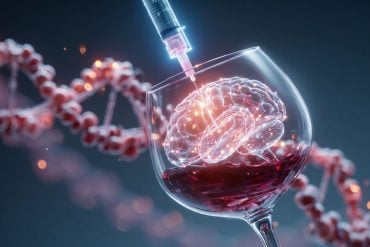Summary: A new study reveals that recalling positive memories before stepping on stage can significantly boost musicians’ performance. Professional wind instrumentalists who reflected on positive experiences showed higher nervous system activity, greater emotional positivity, and stronger arousal compared to those recalling negative or no memories.
These physiological and psychological changes led to better self-rated and peer-rated performance outcomes. The findings highlight the power of reframing stress as readiness and offer strategies for performers to manage anxiety more effectively.
Key Facts
- Positive Recall: Musicians who recalled positive memories performed with higher emotional valence and arousal.
- Nervous System Boost: Positive memories triggered stronger sympathetic nervous system activity.
- Beyond Music: The strategy may also benefit athletes, public speakers, and students managing performance anxiety.
Source: Keio University
In order to maintain a long-term career and consistently deliver high-quality performances, professional musicians are required to exercise control over their psychological state before and during the performance.
However, managing emotions can be challenging, as they are often influenced by a range of uncontrollable factors, including fellow performers and audience, venue, and the nature of the program.
The part of our nervous system that unconsciously regulates involuntary bodily functions like heart rate, breathing, blood pressure, etc., is known as the autonomous nervous system (ANS). A part of the ANS—known as the sympathetic nervous system (SNS)—prepares our body for stressful situations by triggering the stress response, commonly known as the “fight or flight” response.
Prior research in this area suggests that SNS activation can improve musical performances, however the precise mechanism remains unknown. Some studies suggest that positive emotions impact and influence SNS activities, reducing stress, boosting confidence, and enhancing performance in general. Recollection of positive past memories, evoking happy emotions, might activate the SNS, enhance emotional valence, and lead to an enhanced performance.
Inspired by the desire to unravel strategies that can help boost musical performances under pressure on stage, Aiko Watanabe, a saxophonist, set out to undertake further investigation.
“As a saxophonist, I have long been interested in understanding what allows musicians to perform at their best, especially under the pressure of the stage,” says Watanabe, a Ph.D. candidate at the Graduate School of Media and Governance, Keio University, and this study’s main researcher.
The study was led by Associate Professor Shinya Fujii, and was published in Volume 16 of Frontiers in Psychology on September 03, 2025. Sotaro Kondoh, a JSPS Research Fellow, and Tomohiro Samma, a Ph.D. student, both from Keio University, were also a part of the research team.
The team evaluated thirty-six active and experienced professional classic wind instrumentalists. The instruments played by the participants included flute, horn, trombone, etc. The performers were asked to recall either a positive autobiographical memory, or a negative autobiographical memory, or no memories at all, prior to the performance.
Electrocardiogram (ECG) measurement was done during the memory recollection phase of the participants. The same musical piece was played by all instrumentalists for five minutes after this memory recollection phase.
All the participants had to do a subjective evaluation, where they evaluated their own performance, and an objective evaluation, during which they evaluated the performance of the other thirty-five performers.
The subjective evaluation depended on valence, which represents the positive or negative quality of an emotion; arousal, reflecting the intensity or activation level of an emotion; and performance achievement.
The researchers observed that performance achievement score, along with valence and arousal scores, was higher in participants who recollected positive memories before the performance. SD2/SD1 ratio – an indicator of SNS activity – exhibited a higher change in participants with positive memory recollection compared to the rest, indicating an increased SNS activity.
These findings indicate that positive performance memories, accompanied by SNS activation, enhance valence and increase arousal during performance, ultimately contributing to improved performance.
As Dr. Fujii explains, “This means that what matters is not simply physiological arousal itself, but how musicians interpret and regulate their bodily state. Positive memory recall is one effective strategy to foster such positive interpretations.”
These findings can have implications beyond theory, in a way that musicians can benefit during their performance. Strategies like positive memory recollection can help reframe their physiological arousal before going on stage. Deliberate recollection of positive performance memories can shift the interpretation of heightened arousal from “anxiety” to “readiness.”
Performers can feel more confident and expressive during their performances. This approach may also be applied in music education, helping students in stage fright management, and developing healthier performance habits.
Sharing her concluding thoughts, Watanabe adds, “These findings highlight the importance of individualistic interpretation of physiological arousal in high-pressure situations. Such reframing strategies can also benefit athletes, public speakers, and other performers.”
Going ahead, these findings can pave the way for developing strategies to incorporate in training methods that reduce performance anxiety, support the performers’ well-being, and ultimately enable optimal on-stage performance.
Funding: This work was supported by the Taikichiro Mori Memorial Research Grants and the JST SPRING Grant (No. JPMJSP2123) (to AW), by the JST COI-NEXT Grant (No. JPMJPF2203), the JST Moonshot R&D Grant (No. JPMJMS2215), and the JSPS KAKENHI Grant (No. 24H02199) (to SF).
About this stress and memory research news
Author: Shinya Fujii
Source: Keio University
Contact: Shinya Fujii – Keio University
Image: The image is credited to Neuroscience News
Original Research: Open access.
“Enhanced subjective performance achievement in wind instrument playing through positive memory recall: effects of sympathetic activation and emotional valence” by Aiko Watanabe et al. Frontiers in Psychology
Abstract
Enhanced subjective performance achievement in wind instrument playing through positive memory recall: effects of sympathetic activation and emotional valence
Controlling physiological and psychological states before a performance is essential for professional musicians to realize their full potential. However, the characteristics of the optimal pre-performance state remain unclear.
While an increase in sympathetic nervous system activity is typically observed before performance, when associated with anxiety, it can degrade the performance quality. This study examined whether recalling positive autobiographical performance memories enhances subjective performance achievement, accompanied by increased emotional arousal, valence, and autonomic nervous system activity.
Thirty-six professional wind instrument players participated in the study. Prior to performing musical pieces, participants engaged in one of three conditions: (1) recalling positive autobiographical memories, (2) recalling negative autobiographical memories, or (3) imagining routine pre-performance activities (no-memory condition). During the memory recall phase, heart rate was measured.
After each performance, participants rated their subjective arousal, valence, and performance achievement. We calculated the heart rate variability indices, specifically SD1 (reflecting parasympathetic nervous system activity) and SD2/SD1 (used as a relative indicator of sympathetic predominance).
The results showed that performance achievement, arousal, and valence were significantly higher in the positive than in the negative condition. Our path analysis further revealed that an increase in SD2/SD1 did not directly predict performance achievement; instead, it was associated with an increase in emotional valence, which in turn led to improved performance.
These findings suggest that recalling positive performance memories activates sympathetic nervous system activity and fosters positive emotions, thereby enhancing the performance achievement of professional musicians.







